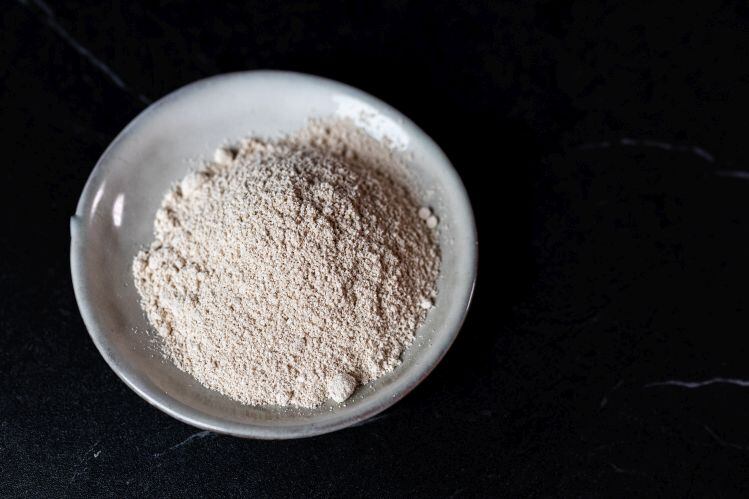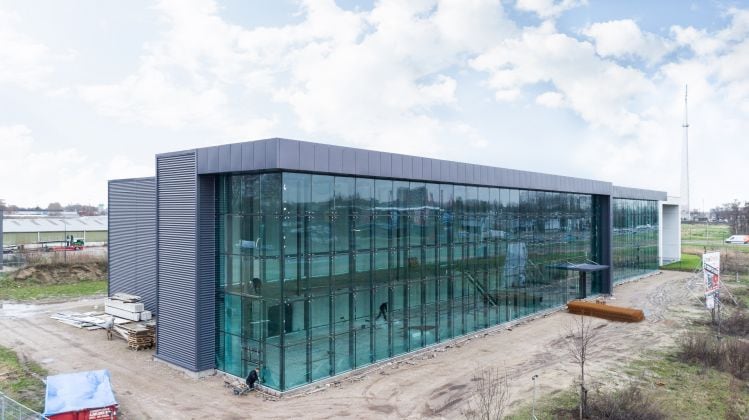While Quorn has been in a field of one for many years when it comes to growing fungi in fermentation tanks (it started selling mycoprotein, a strain of filamentous fungi Fusarium venenatum, in the 1980s) a flurry of startups has recently emerged developing whole biomass products from various microbes, from Nature’s Fynd and Superbrewed Foods to ENOUGH (Abunda), The Better Meat Co (Rhiza protein), Atlast Food Co, Meati Foods, and Aqua Cultured Foods.
But there’s room in the market for multiple players, said Koolloos, although he claims Fermotein has some distinct advantages.
“When you think about capex, our plants will be cheaper; our process is probably a couple of times more cost effective than when you would build, let’s say, a more common mycoprotein fermentation process for a fusarium-based product [such as Quorn or Abunda], so that's one of the ways we stand out,” he told FoodNavigator-USA,
“The thing people also like is just how bland Fermotein is.”
No synthetic biology, no protein concentrates or isolates
Unlike ‘precision fermentation’ players such as The EVERY Company, Geltor, and Perfect Day, The Protein Brewery is not using synthetic biology to genetically engineer microbes (fungi, yeast etc) to produce target molecules.
Instead, it is growing a Non-GMO strain of fungi directly as a whole food source, added Koolloos.
Rather than extracting the protein from the biomass to make a concentrate or isolate, The Protein Brewery is producing a whole food, so there is no expensive cracking to open cells to release the protein, no ‘extraction,’ no secretion of protein into the growth media, and no major byproduct that needs to be valorized.
The whole biomass is simply dewatered (so no solvents), said Deb Anderson, a dairy scientist who previously worked at DSM, Kerry, Lipid Nutrition, Glanbia, and ABITEC, and was hired in August to lead The Protein Brewery’s North American business.

Feedstock: ‘What we prefer to use is any non-allergenic, non-GMO, carbohydrate source’
Fermotein has high levels of fiber and protein (“It has the closest amino acid profile to meat and is superior to vegetal alternatives,” claimed Koolloos), vitamins, minerals and essential fatty acids, and can be grown – in days - in fermentation tanks using a fraction of the inputs required to grow traditional food crops, or raise, feed and slaughter animals, said Anderson.
“What we prefer to use is any non-allergenic, non-GMO, carbohydrate source. So here in North America, we'll be looking at things like potato, while in other countries we may use sugar beet or sugar cane, cassava or corn, but not soy or wheat.”
According to Koolloos, “We could even use a [waste] potato stream from a French Fries plant, using the bits of the potato they don’t use. So those types of streams are very possible.”
Demo-scale plant in Breda, The Netherlands
The Protein Brewery - which raised €22m ($25.2m) in a series A round late last year from investors including Unovis Asset Management, Novo Holdings, and Roquette Ventures - has a pilot plant up and running in Breda, the Netherlands, and recently announced a larger demo-scale plant with a production capacity of around 1,500 tons per year that should be operational by the end of 2022.
A full-scale commercial plant - of 10,000 tons of dry Fermotein per year or larger – will follow, either in the US or Europe, depending on how things go over the next year or so, said Anderson.

‘We have a wet product and a dry product’
So what’s it like to work with, and if you want to use Fermotein in a meat alternative, would you need to extrude it?
Owing to its water-binding properties and 10% (unsaturated) fat content, products created with Fermotein are less dry and have an attractive structure, said Anderson.
“We have a wet product and a dry product. The dry product is of keen interest because we're one of the only companies out there, if not the only one, that has a dried fermented fungi type protein.
“With that in mind, we can use both our wet cake product, which is 30% dry matter and looks like a bunch of papers put together with a fibrous structure, and we can chop it up and use it in a burger formulation, or we can use our dry material in a burger formulation. With the dry powder, you’d need to rehydrate it [for a burger] keeping in mind it's about 45% protein and approximately 35-38% fiber.”
“As of now, we don't have a texturized product, but we have started initial trials with extrusion and have had some very promising results. Some companies [such as Atlast Food Co, which grows mycelium in meaty ‘slabs’ using solid state fermentation] are going after whole cuts. That's not necessarily the market that we are targeting, and there's room for all of us.”
Safety, labeling and regulation
So how will Fermotein be labeled on ingredients lists in the US market?
“It’s under discussion, but ones [names] that tend to pop out are 'fermented high fiber protein,' or 'fermented plant protein,'” said Anderson.
But what about ‘mycoprotein,’ a term used by Quorn and by The Better Meat Co to talk about their fungi-based proteins?
“You could use it as a more general term, but mycoprotein is very much associated with the Quorn products,” said Koolloos. “And we have a different [fungi] strain and proposition.”
As for Fermotein’s regulatory status in the US, The Protein Brewery has put together a GRAS determination for the ingredient, and aims to submit that to the FDA by the year end, said Anderson, while it has also submitted a Novel Food application to the European Food Safety Authority and the relevant agency in Singapore.
As regards allergenicity and safety, said Koolloos, “We have turned our organism completely inside out. We've completely sequenced it. We've looked at the proteome, we've looked at the secondary metabolites. It simply isn't able to pose any of these risks. So we have something really totally different, so for that reason, maybe mycoprotein may not be the best term to use, but it will be up to our customers to ultimately decide.”
Sustainability, scalability, and consistent supply
Right now, Anderson’s focus is on helping customers – who get the sustainability and scalability story – better understand how to use the ingredients in food formulations, she said.
“But they like the fact they can put it into such a variety of applications from baked goods, cookies, crackers, pasta, to burgers and nuggets.
“Some other things that tend to pop when we talk to customers are sustainability, scalability, and consistent supply, because we can grow our plant along with the customer, plus pea protein prices are going through the roof right now because of the drought…”
Growing Fermotein is efficient (it is not labor intensive, has high yields, and requires less land, water, and energy than plant or animal protein sources); scalable; consistent; and reliable (all-year round production, requiring limited space with a controllable, stable process not sensitive to weather events); and highly versatile (suitable for everything from meat substitutes to bread, cereals, pasta, protein bars, and shakes), claims The Protein Brewery, which is targeting markets in the US, Europe and Asia.

